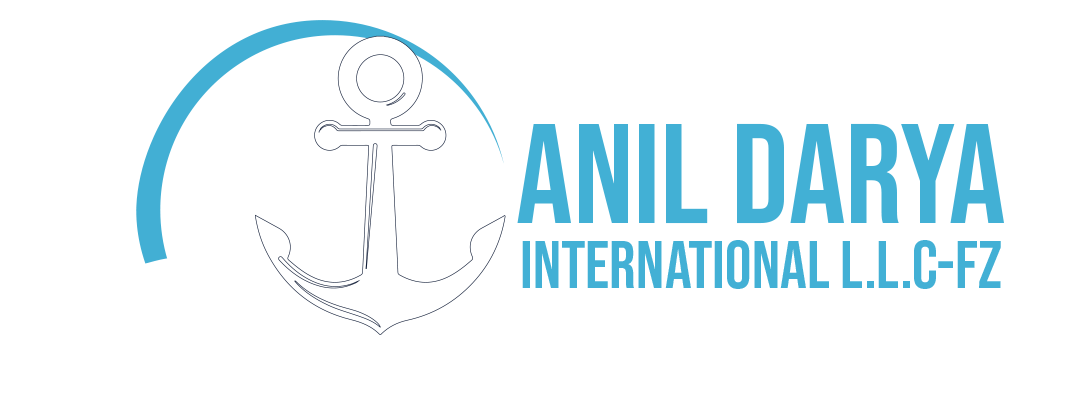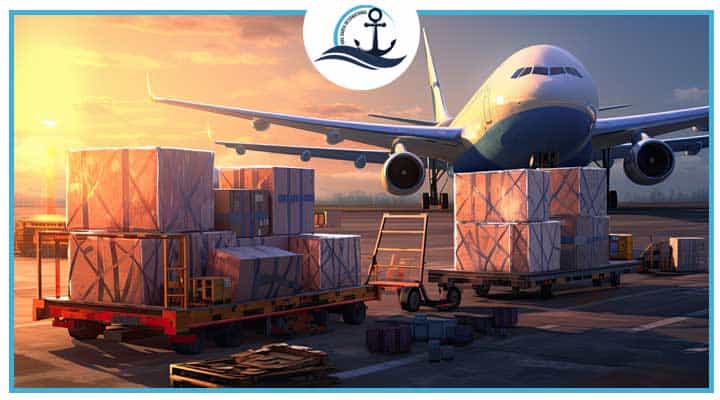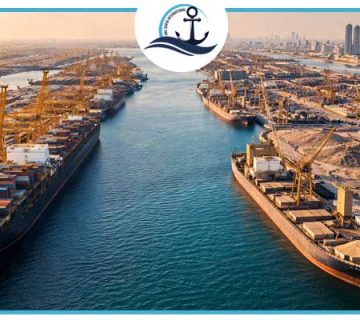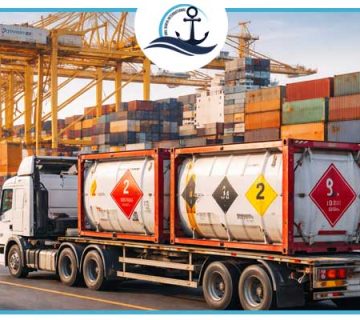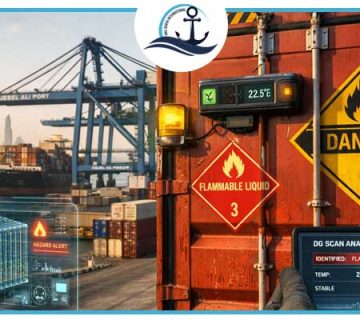|
Getting your Trinity Audio player ready...
|
Air Freight Trends in Dubai: Faster Delivery, Higher Costs, Environmental Impact
In the past decade, Dubai has transformed from a regional cargo hub into one of the world’s most critical nodes for international air logistics.
Positioned at the crossroads of Asia, Europe, and Africa, the emirate now connects over 150 destinations through Dubai International Airport (DXB) and Al Maktoum International Airport (DWC).
As global supply chains race to meet consumer demand, air freight from and to Dubai is no longer a luxury service—it has become a strategic necessity for businesses that need fast, reliable, and regulation-compliant shipping.
Yet 2025 is shaping up to be a year of complex changes. New market forces, regulatory updates, and environmental expectations are reshaping how cargo moves through the skies.
For companies that regularly ship goods in and out of Dubai—whether electronics, pharmaceuticals, or dangerous goods—understanding these shifts is essential to avoid delays, penalties, or excessive costs.
Speed Becomes the Global Benchmark
Few cities can match Dubai’s ability to move cargo quickly. Airlines operating out of DXB and DWC now offer more direct routes, late-cutoff times, and real-time tracking than ever before.
This means a shipment leaving Shanghai in the evening can be cleared through Dubai customs and be en-route to Europe the next morning. For manufacturers running just-in-time production or e-commerce retailers promising next-day delivery, this speed is a competitive advantage that sea freight simply cannot match.
The demand for ultra-fast transit is especially strong for time-critical dangerous goods—for example lithium batteries, high-value chemicals, or urgent medical supplies.
However, this speed advantage only works when the cargo is correctly packed and documented. Dangerous goods packaging must meet IATA standards, and every box requires precise hazard classification and IATA DG labeling.
A single incorrect label can cause the entire shipment to be grounded, erasing the time savings that air freight promises.
Rising Costs and Capacity Pressures
With speed comes expense. Air freight has always carried a higher price tag than ocean transport, but recent market conditions have amplified the gap.
Several factors are driving costs upward:
- Fuel price volatility linked to global energy markets.
- Carbon surcharges introduced by airlines to offset emissions.
- Capacity constraints as passenger flights—which also carry cargo in belly holds—face seasonal fluctuations.
For shippers, the result is higher freight rates and additional service fees, particularly for sensitive or hazardous cargo that requires dedicated handling.
Special procedures such as dangerous goods packaging checks, secondary containment, and IATA DG labeling add both time and cost.
Companies shipping to or from Dubai must budget carefully, balancing the urgency of air transport against these rising expenses.
Safety Takes Center Stage
Alongside cost pressures, safety requirements have never been more stringent.
The UAE General Civil Aviation Authority (GCAA) and Dubai Customs have aligned with the latest IATA Dangerous Goods Regulations (DGR), making Dubai air freight safety a top operational priority.
Every shipment of hazardous cargo must undergo:
- Accurate classification under the IMDG and IATA codes.
- Certified dangerous goods packaging using UN-approved containers, absorbent materials, and tamper-evident seals.
- Precise IATA DG labeling to ensure handlers and pilots can immediately identify the risks involved.
Failure to comply can lead to heavy fines, shipment rejections, or—worst of all—accidents during flight.
These rules apply to a wide range of goods beyond obvious chemicals, including perfumes, batteries, aerosols, and certain medical devices.
Even experienced shippers can overlook new amendments, which is why working with a specialist is critical.
Environmental Responsibility and Green Logistics
Air freight is fast but carbon-intensive.
As global climate initiatives gain momentum, Dubai is investing in greener infrastructure and encouraging carriers to adopt sustainable aviation fuel (SAF) and AI-based route optimization.
Many airlines now offer carbon-offset programs, and shippers who participate can enhance their brand image while reducing environmental impact.
For businesses balancing speed and sustainability, choosing partners with documented environmental strategies is becoming a key procurement requirement.
Multimodal Strategies: Air Meets Sea, Bulk, and Break-Bulk
Despite its advantages, air freight is not always the right answer for every shipment.
Many Dubai traders combine modes to optimize both cost and speed.
For example, high-value components may travel by air to meet production deadlines, while larger equipment moves by sea freight, bulk cargo, or break-bulk shipments to save on cost.
An integrated logistics plan can dramatically reduce expenses while still meeting market launch dates.
Anil Darya Shipping specializes in precisely these kinds of hybrid strategies.
By combining urgent air solutions with ocean, bulk, and break-bulk services, the company ensures that clients pay only for the speed they truly need.
This flexibility is particularly valuable for businesses importing raw materials by sea and exporting finished goods by air.
How Anil Darya Shipping Ensures Compliance and Efficiency
Handling hazardous cargo is more than simply booking a flight.
It requires deep knowledge of international and UAE-specific regulations, meticulous paperwork, and hands-on inspection.
Anil Darya Shipping provides a full suite of Dubai air freight safety services, including:
Pre-Shipment Assessment
Certified DG Packaging
IATA
DG Labeling
Real-Time
Tracking
- Pre-shipment cargo assessment to identify hazardous classifications and required packaging.
- Certified dangerous goods packaging with UN-approved materials and compliant markings.
- IATA DG labeling and documentation to guarantee smooth acceptance by airlines and customs authorities.
- 24/7 tracking and support, so clients can monitor every step of the journey.
Our team stays updated with every IMO, IATA, and UAE regulatory change, protecting clients from costly penalties or shipment delays.
Whether you are moving sensitive chemicals, electronics, or temperature-controlled pharmaceuticals, Anil Darya Shipping ensures that every box leaves Dubai fully compliant and arrives on time.
Real-World Applications: Dangerous Goods in Action
Consider a pharmaceutical company shipping temperature-sensitive vaccines to Europe.
The cargo must remain within a strict temperature range while complying with IATA DG labeling requirements for dry ice.
Anil Darya International L.L.C-FZ coordinates specialized packaging, dry-ice replenishment, and real-time monitoring to prevent temperature excursions.
Or imagine a technology firm exporting high-capacity lithium batteries from Dubai to the United States.
Without certified dangerous goods packaging, airlines could reject the shipment outright.
Our experts design UN-tested packaging solutions and manage all declarations, ensuring the batteries clear customs without incident.
Balancing Speed, Cost, and Sustainability
The future of Dubai air freight will be defined by trade-offs.
Shippers must decide when paying a premium for same-day delivery makes financial sense, when slower sea freight is acceptable, and how to minimize carbon footprints without sacrificing reliability.
Success depends on accurate forecasting, transparent cost analysis, and choosing logistics partners who can execute across multiple modes.
Whether you are a seasoned importer or a first-time exporter, navigating Dubai’s air-freight environment in 2025 requires expert guidance.
Our certified team will help you design a safe, cost-effective, and environmentally responsible logistics plan—covering everything from dangerous goods packaging to IATA DG labeling and multimodal routing.
Frequently Asked Questions (FAQ)
Dubai is experiencing strong demand for ultra-fast transit times, higher freight rates due to fuel and capacity constraints, and stricter Dubai air freight safety rules—especially for dangerous goods shipments.
Certified dangerous goods packaging and proper IATA DG labeling require specialized materials, inspections, and documentation, which increase the total cost. However, these steps are mandatory to avoid fines and flight delays.
IATA DG labeling provides standardized hazard symbols and handling instructions for dangerous goods. Airlines use these labels to ensure safe loading, transport, and unloading of hazardous cargo.
Yes. Anil Darya Shipping offers integrated services, combining air freight for urgent cargo with sea freight, bulk cargo, or break-bulk solutions for cost-efficient large shipments.
Not necessarily. Many dangerous goods—such as lithium batteries, dry ice, and certain chemicals—are permitted if packed, documented, and labeled according to IATA DGR and UAE regulations.
Shippers can work with carriers that use sustainable aviation fuel (SAF), choose carbon-offset programs, or combine air and ocean transport to balance speed with sustainability.
Key documents include the Shipper’s Declaration for Dangerous Goods, airway bill, packing list, and any special UAE or IMO permits. Anil Darya Shipping prepares all required paperwork.
Yes. Dubai Customs and the UAE General Civil Aviation Authority enforce strict inspections to confirm compliance with dangerous goods packaging and labeling standards before departure.
With proper documentation, many shipments clear customs and depart within 24 hours. Dangerous goods may require additional screening, so early booking is recommended.
You can contact Anil Darya Shipping 24/7 for a free consultation and rapid price quote. Our team will assess your cargo, recommend the safest packaging, and provide a competitive rate.
